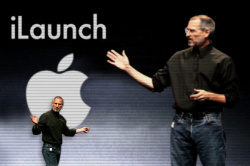Autobahn Limit Plan Irks Germans
SFGate: An EU official called on Germany to give up the famous freedom of its highways and impose speed limits on the autobahn to fight global warming — a demand that drew angry responses on Sunday in a country that cherishes what it calls “free driving for free citizens.”
The call came as the German government makes action against climate change a priority of its current presidencies of the EU and Group of Eight.
Still, the German environment minister showed little enthusiasm for EU Environment Commissioner Stavros Dimas’ suggestion and a group representing the country’s auto industry said it needed “no coaching on efficient climate protection from Brussels.”
Not before I bloody get there you don’t!

